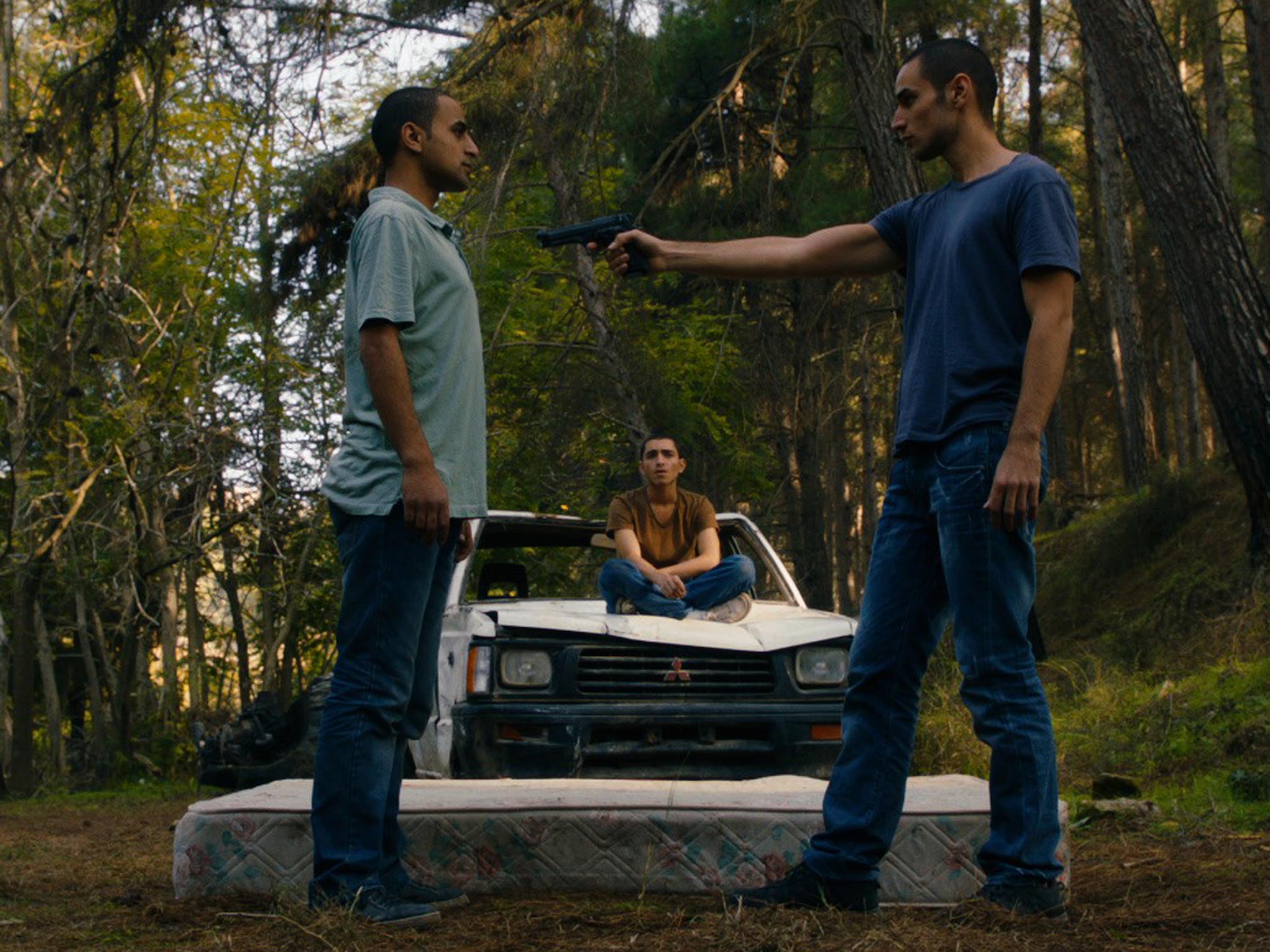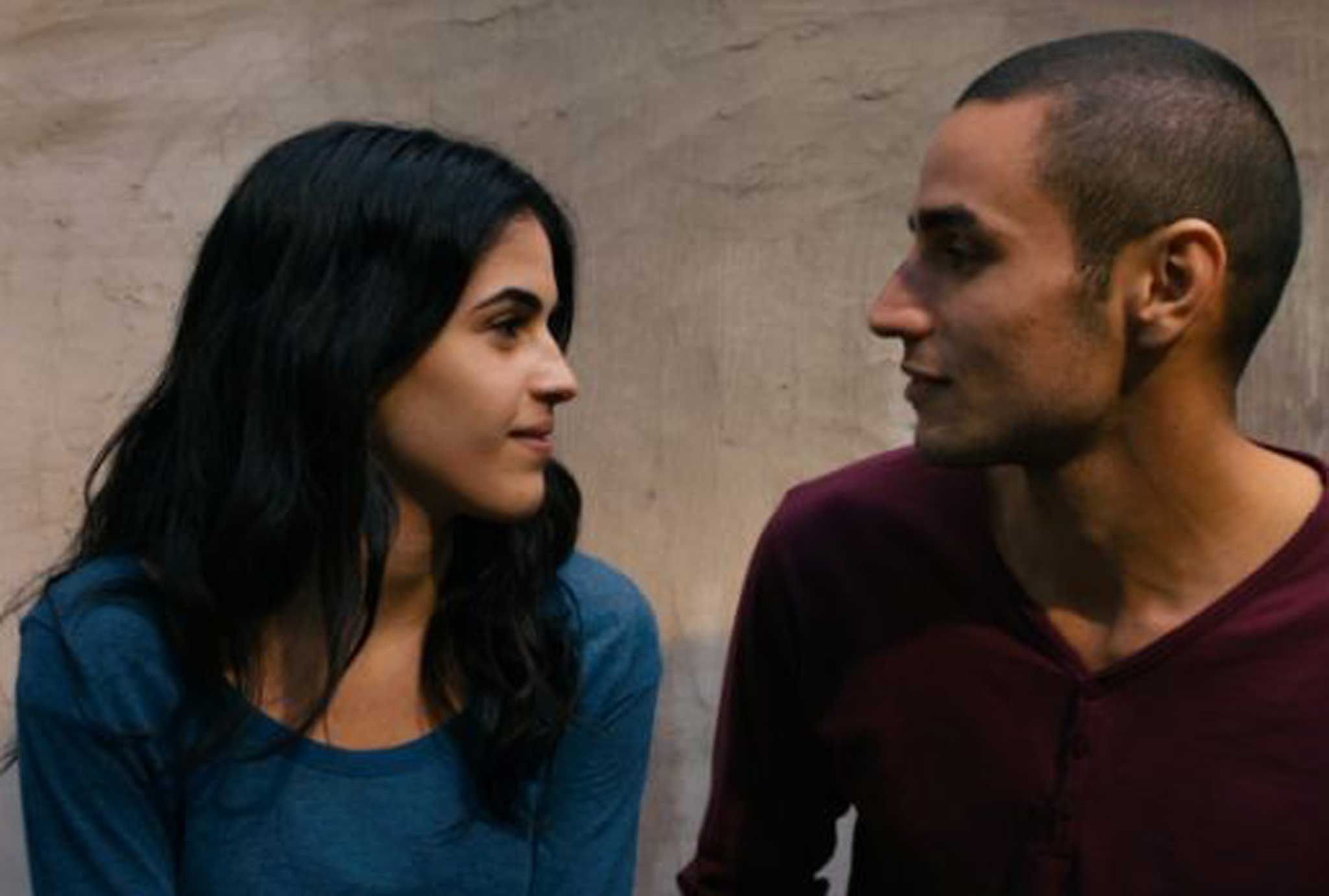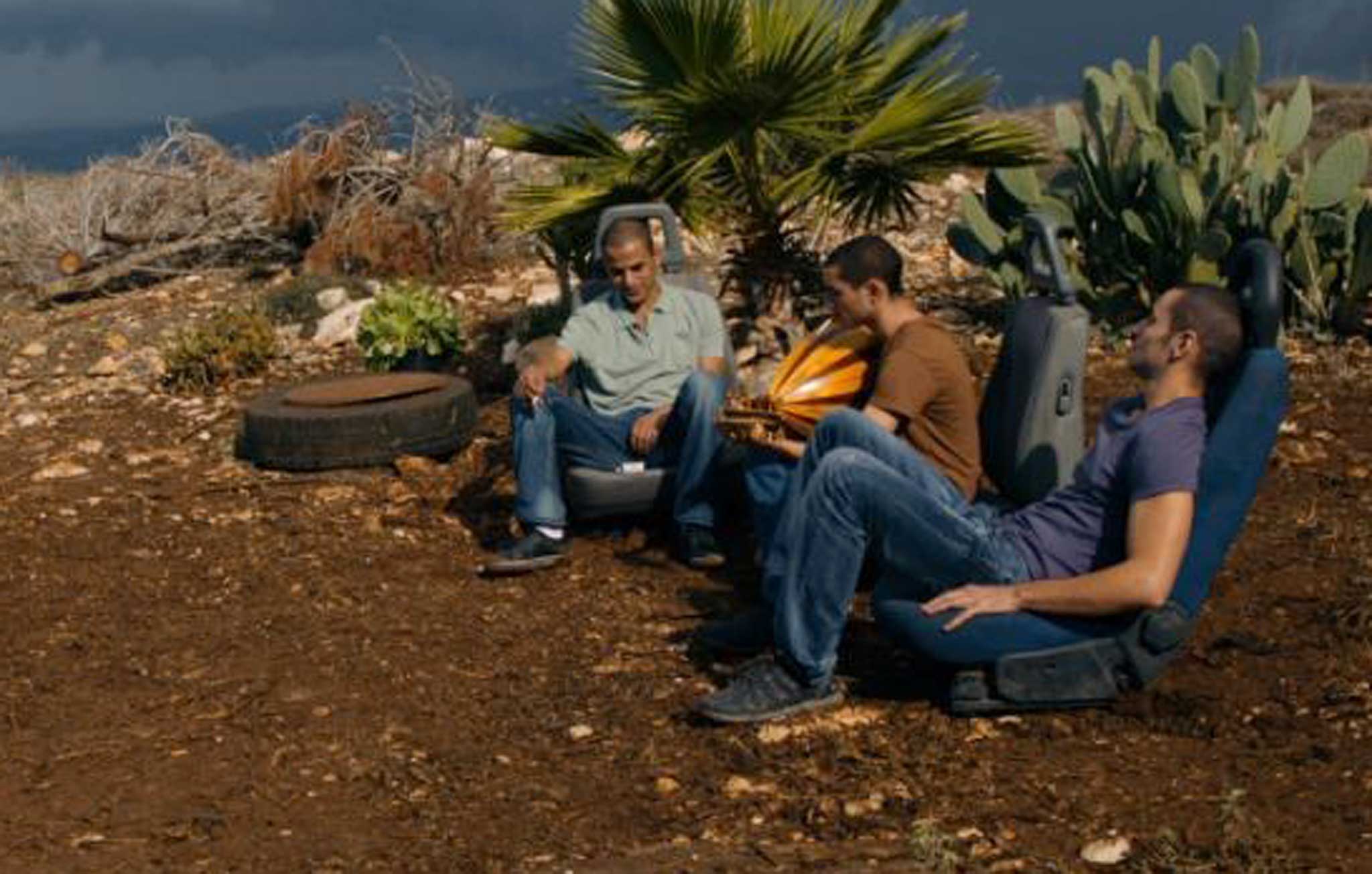Omar, film review: Hany Abu-Assad's Oscar-nominated thriller is shot from the heart
(15) Hany Abu-Assad, 96 mins. Starring: Adam Bakri, Leem Lubany, Iyad Hoorani, Samer Bisharat

Your support helps us to tell the story
From reproductive rights to climate change to Big Tech, The Independent is on the ground when the story is developing. Whether it's investigating the financials of Elon Musk's pro-Trump PAC or producing our latest documentary, 'The A Word', which shines a light on the American women fighting for reproductive rights, we know how important it is to parse out the facts from the messaging.
At such a critical moment in US history, we need reporters on the ground. Your donation allows us to keep sending journalists to speak to both sides of the story.
The Independent is trusted by Americans across the entire political spectrum. And unlike many other quality news outlets, we choose not to lock Americans out of our reporting and analysis with paywalls. We believe quality journalism should be available to everyone, paid for by those who can afford it.
Your support makes all the difference.Hany Abu-Assad's Oscar-nominated Omar has an intensity that many Cold War spy films lack. It is an embroiled story of spy craft and betrayal but this time, the setting isn't Berlin or George Smiley's London.
The film unfolds in the present day, in the heart of occupied Palestine. Abu-Assad's screenplay expertly interweaves personal and political elements. This is at once a coming-of-age drama, a romance and a thriller that combines multiple reversals and plot twists with chases and action sequences. There is also a documentary-like aspect to its portrayal of a divided and occupied Palestine in which the lines between everyday family life and political struggle have long since become blurred.
Abu-Assad doesn't skimp on showing the brutality of the Israeli military but many of the most shocking acts of violence here are perpetrated by the Palestinians.
Omar (Adam Bakri) is first seen scaling the "isolation wall" that was ostensibly built to protect Israelis from Palestinian "terrorists". He is young and athletic. The reason he is climbing the wall as surveillance bullets whistle round him is simply to visit his friend Tarek (Eyad Horuani), whose beautiful younger sister Nadia (Leem Lubany) he is courting.
It is typical of Abu-Assad's approach that Omar's acrobatics, which we suspect will be the prelude to a bombing or an assassination, end up with nothing more sinister than the protagonist meeting his friends. Amjad (Samer Bisharat), his rival for Nadia's affections, does his best Marlon Brando impersonation. He, Tarek and Omar sit around and shoot the breeze as if they're Palestinian equivalents to the carefree young bucks on the verge of adulthood in Barry Levinson's Diner.

Of course, there is nothing ordinary about their lives. We see Omar, a baker by trade, harassed and humiliated by Israeli soldiers. He and his friends have no freedom of movement. Bristling against the restrictions placed on them, they have become "freedom fighters." When they are involved in an act of violence against the Israelis, the retribution is swift. "No way we will let a soldier-killer go free" is the message from the Israelis. They are faced with torture and imprisonment. The only chance to save themselves is to turn informer.
Abu-Assad, who was also Oscar nominated for his 2005 film Paradise Now, a tragicomic account of a suicide bombing, has a flair for action. The chase sequences here are reminiscent of those in Julien Duvivier's Pépé Le Moko (1937), in which Jean Gabin's criminal on the run flees through the labyrinthine alleyways of the casbah with the cops behind him. We see Omar leaping across buildings, hurtling down stairways and trying to blend into crowds as the Israeli security forces come after him.
Such rip-roaring moments sit a little uncomfortably next to the scenes in which prisoners are being tortured and blackmailed. Abu-Assad, though, is always ready to confound audience expectations. One of the most sympathetic characters is Agent Rami (Waleed Zuaiter), the Israeli security agent who tries to manipulate the Palestinians and turn them against one another. There is one telling and very poignant scene in which this seemingly shadowy and sinister figure calls his mother to ask her to pick up his child. He is at work "and stuck in the middle of the fucking West Bank", which makes school pick-up a challenge. A more conventional film would simply show Rami as the villain. Instead, Abu-Assad portrays him as a cultured and decent man. He has an obvious rapport with Omar who, in theory, is his fiercest antagonist.

This is a film in which everyone turns out to be deceiving everyone else. "Never confess" is one of the sacred principles of the freedom fighters but, we soon discover, there are degrees of treachery. Subterfuge and stealth are a necessary part of everyday existence. The deception extends into the most intimate parts of the characters' privates lives. When Omar wants to see Nadia, he often has to hide in the shadows. Lovers aren't honest. Childhood friends keep secrets from one another or spy on each other. The paranoia mounts. Everyone knows there is an informer in their midst but it is well-nigh impossible to identify where the leaks are coming from. Inevitably, there is even a degree of self-deception as characters try to justify their own actions.
Between Paradise Now and Omar, Abu-Assad made a very badly received American thriller called The Courier (2012) starring Mickey Rourke. As he himself later acknowledged, everything about it, from its characters to its settings, was artificial. One reason that Omar is so effective is that it feels real. The director is portraying a world he knows from the inside. He shot the film partly in Palestine with a predominantly Palestinian crew and cast. They may not be experienced but they bring an obvious energy and commitment to the project. Adam Bakri, in particular, is impressive as the mercurial, conscience-torn hero.
Another of the film's strengths is the way it tones down the polemics. The situation its characters face is self-evident. The Palestinians are living under occupation. The Israeli soldiers are subject to the constant threat of violence. There is no need for speechifying to point out either side's predicament. A simple shot of Omar clambering over the huge isolation wall visit his girlfriend is more eloquent than any monologue in expressing the character's yearning and desperation.
Some of the sudden lurches in tone in Omar are disconcerting. The film combines gentle comedy and moments of lyricism with scenes of torture and violence. Such shifts are intentional. Abu-Assad is simply reflecting the ever-changing nature of his characters' daily lives in a fraught and strange environment in which betrayal has become endemic.
Join our commenting forum
Join thought-provoking conversations, follow other Independent readers and see their replies
Comments